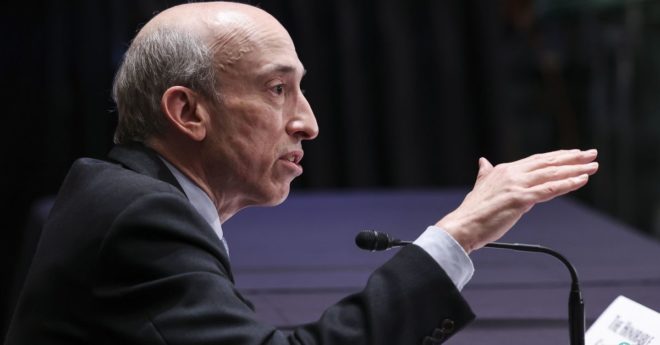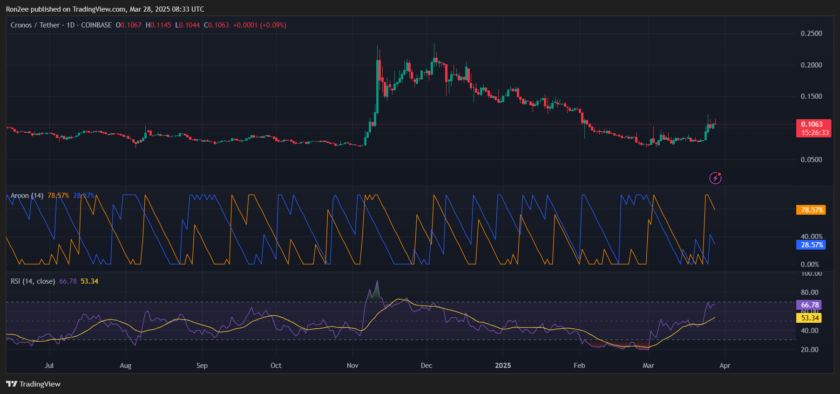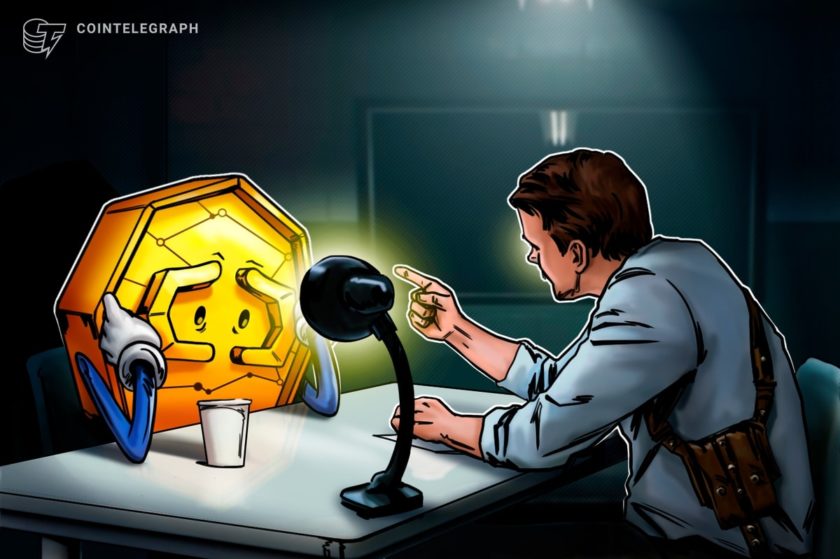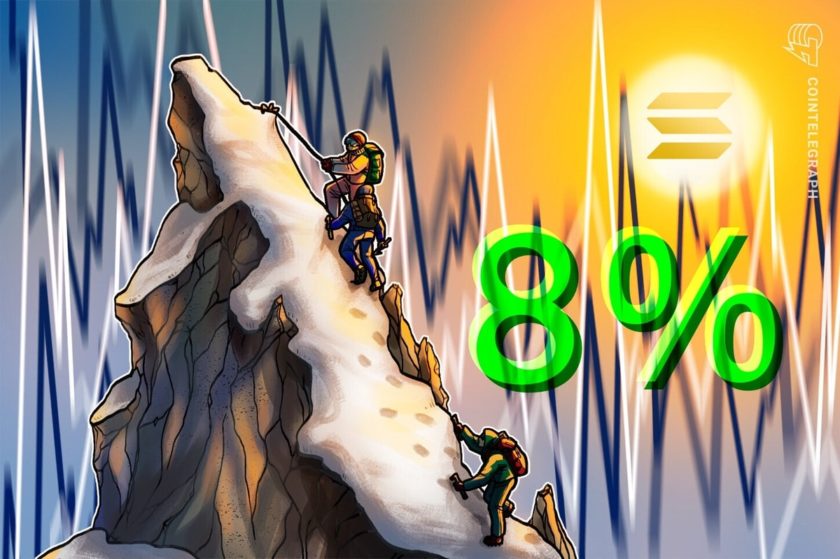SEC Chairman Gary Gensler yesterday delivered lengthy testimony before the Senate Banking, Housing and Urban Affairs Committee, covering a variety of topics including the agency’s plans for more structured regulation of cryptocurrency. With many in the industry decrying what has often appeared to be a scattershot and improvised approach to crypto regulation, Gensler told the committee that his SEC staff is hard at work drafting new, clearer rules for the industry.
Gensler made one particularly notable comment, saying that the publicly traded crypto exchange Coinbase is offering “dozens of tokens that might be securities” without being properly registered to do so.
David Z. Morris is CoinDesk Chief Insights Columnist.
That is understandably frustrating for Coinbase and industry observers more broadly, given that the SEC took a relatively hands-off approach during the 2017 boom in so-called “initial coin offerings” that birthed many of the assets traded on Coinbase. More broadly, Coinbase and others have argued that the SEC has refused to offer sufficient regulatory clarity on crypto.
In historical terms, that hasn’t been entirely negative. To a degree, the past few years have amounted to an unspoken “safe harbor” period in which the SEC and others didn’t pre-emptively shut down ICO projects or other crypto innovations, instead carefully picking the most obviously fraudulent targets for later prosecution. It’s increasingly clear that Gensler’s SEC will break with that approach, as seen with the recent pre-emptive warning to Coinbase about a proposed lending product.
But why, in retrospect, was the SEC so hands-off for so long? An intriguing perspective was floated after Gensler’s testimony by Bennett Tomlin, an independent financial analyst and co-host of the “Crypto Critics Corner” podcast. “I have an intuitive sense that many ICO promoters benefited from the Trump Administration running the SEC,” Tomlin tweeted.
On the one hand, that could apply to any Republican administration, given the party’s ideological bent for less government oversight and more individual responsibility. But there were also worrying elements specific to the Trump administration.
One example is the tie between former Trump adviser Steve Bannon and Brock Pierce, a major player in a variety of crypto projects that in retrospect appear increasingly questionable. Bannon and Pierce worked together starting in the mid-2000s, when both were pioneers in the sale of digital assets for video games. Gaming eventually led Pierce into crypto, as it did many others, and he became a co-founder of crypto entity Block.One. Block.One organized and ran what purportedly became the biggest ICO of all time, raising a supposed $4.4 billion for a supposed Ethereum competitor called EOS.
That sale has since been alleged to be substantially fraudulent. Block.One paid a $24 million fine in 2019 for sale of an unregistered security, but at the time that fine was viewed by many as a laughable slap on the wrist given the amount raised. And apparently much more severe misbehavior has not yet been pursued by regulators: Researchers recently alleged that as much as $800 million of the supposed total raised was the result of “recycling” donated ether into supposedly new donations. The report did not specifically claim that Block.One was directly involved, and the company has denied engaging in collusion.
This manipulation of the numbers likely helped bait more real investors into giving money to Block.One. But three years later, EOS has largely failed to live up to either its technical or financial promise, and currently has a market cap of only $4.7 billion, likely representing huge losses or opportunity costs for many EOS backers. Dan Larimer, the technical head of the project who was for a time held up as a Vitalik-like genius, has largely disappeared from the crypto scene. That means an awful lot of early crypto investment has more or less evaporated, instead of helping push the technology or ecosystem forward.
This is not to allege any outright collusion between Trump’s SEC and crypto fundraisers. But it should be kept in mind amid the uproar over what seems likely to become more aggressive regulation under Gensler. While it might uncharitably be viewed as a crackdown, it’s also worth considering that the Trump SEC was to a degree asleep at the wheel, and that the real clarity Gensler is promising could be a net benefit to the industry if it’s done right.
Update 9.20.2021: This story has been updated with Block.One’s response to research related to its crowdsale.




